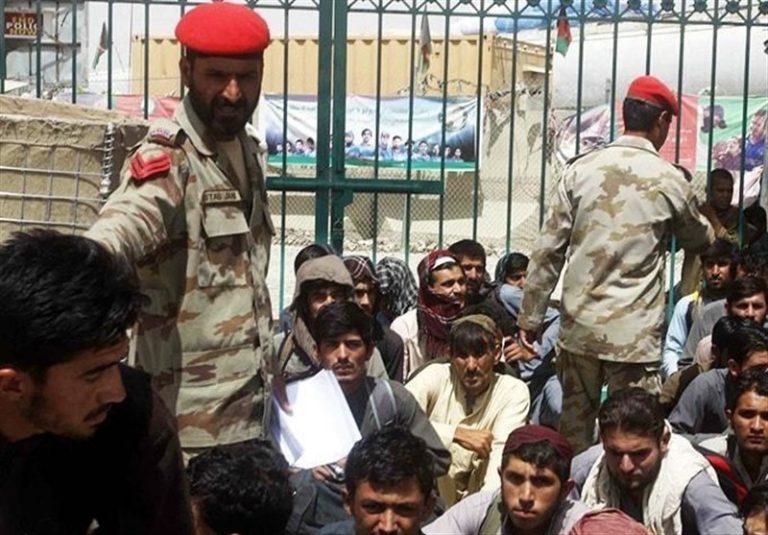Pakistan detains Afghan refugees with UN papers
Refugees fleeing the Taliban are detained or deported after police seized their papers. Pakistan shut down the Torkham crossing for nine days after clashes broke out at the border. It reopened it only after Afghan authorities pledged to stop acts of terrorism originating from their territory. Expert warns that Pakistani Taliban are the greatest threat to regional stability.
Islamabad (AsiaNews/Agencies) – Pakistani security forces continue to carry out mass arrests of Afghan refugees following clashes on the border with Afghanistan two weeks ago, which led Pakistan to shut down the Torkham border crossing (at the western end of the Khyber Pass) for nine days, blocking trade and people.
As a result of tensions between the two countries, Pakistani authorities began rounding up and expelling Afghan refugees. In Karachi alone, 250 were detained last week, following “mass arrests” based on "racial profiling" twitted lawyer and human rights activist Muniza Kakar.
Today the Pashtun Protection Movement, an organisation that blames both the Taliban and the Pakistani military for the destruction and division of Pashtun territories, criticised Pakistani police, and sent a letter to the UN Human Rights Council calling for urgent international action.
Two days ago, more than 200 Afghan refugees were arrested in the capital, Islamabad, most of whom worked in the city's fruit and vegetable market with permanent residency papers.
Proof of Registration cards were issued to Afghan refugees in Pakistan in 2006 and were last extended for two years in 2021. Since then, many refugees complain about the lack of help to complete the paperwork needed to extend their stay, adding that the authorities harass them when they apply for asylum.
According to the UNHCR, the UN refugee agency, more than 1.3 million Afghans are registered out of 3.7 million living in Pakistan.
Some 1.6 million people fled Afghanistan in the past two years, and at least 600,000 have crossed into Pakistan.
Recent border clashes originated on the Afghan side. Pakistan claims the Taliban were building "unlawful structures” on Pakistani territory and opened fire when challenged by Pakistani security forces.
On the same day, heavily armed militants from the Afghan side attacked two outposts in the northern Chitral border district, killing four soldiers. Twelve attackers also died during the incident.
In the past, the Pakistani Taliban had attacked Pakistani security forces when they tried to build a barrier along the Durand Line that demarcates the border between the two countries.
Afghanistan has never recognised the line, while radical Pashtuns who live on both sides call for the creation of a single territory.
For Pakistan, Afghan Taliban are protecting groups tied to Tehrik-i-Taliban Pakistan (TTP), effectively helping them to carry out armed attacks against the Pakistani military and government institutions.
Spurred by the Taliban’s return to power in August 2021, the TPP want to impose an Islamic Emirate in Pakistan as well.
The TTP "is posing the greatest threat" to regional stability, warned Tom West, the US special representative for Afghanistan, “We see a very significant increase in [TTP] attacks directed at Pakistan,” he added.
Eventually, Pakistan reopened the Torkham crossing after Taliban Foreign Minister Amir Khan Muttaqi vowed that Afghan territory would not be used for acts of terrorism, a commitment already made in the past.
04/01/2022 15:55
31/08/2021 11:19







.png)










